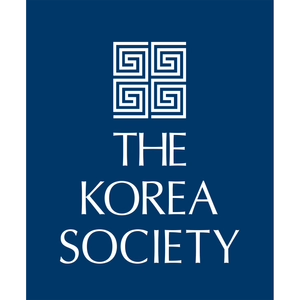
Dark money in SC politics
07/16/20 • 35 min
In the couple weeks leading up to the primary runoff for South Carolina state Sen. Luke Rankin's seat, televisions in the Myrtle Beach area were flooded with political ads — at least $785,000 worth of them, to be exact.
The ads were paid for by three different groups but, beyond those groups' names, not much else is known about them. That's because they're so-called "dark money" organizations that pour huge sums of money into political ads but don't disclose their donors.
For this particular race, which pitted Rankin against a conservative challenger, those groups combined were able to spend more than three times what Rankin raised for his own campaign.
This kind of political spending is becoming increasingly common in the U.S., but the system is particularly bad here in South Carolina because of the state's campaign finance laws.
South Carolina is one of just three states that does not track or police this type of political advertising in any way.
For this week's podcast, we talked with political reporter Jamie Lovegrove and business reporter Andrew Brown who followed the money with the race for Rankin's seat.
They also discussed why this race in particular was targeted, which other S.C. elections have been influenced by dark money and how likely it may be to see legislation that reins in these groups in the near future.
In the couple weeks leading up to the primary runoff for South Carolina state Sen. Luke Rankin's seat, televisions in the Myrtle Beach area were flooded with political ads — at least $785,000 worth of them, to be exact.
The ads were paid for by three different groups but, beyond those groups' names, not much else is known about them. That's because they're so-called "dark money" organizations that pour huge sums of money into political ads but don't disclose their donors.
For this particular race, which pitted Rankin against a conservative challenger, those groups combined were able to spend more than three times what Rankin raised for his own campaign.
This kind of political spending is becoming increasingly common in the U.S., but the system is particularly bad here in South Carolina because of the state's campaign finance laws.
South Carolina is one of just three states that does not track or police this type of political advertising in any way.
For this week's podcast, we talked with political reporter Jamie Lovegrove and business reporter Andrew Brown who followed the money with the race for Rankin's seat.
They also discussed why this race in particular was targeted, which other S.C. elections have been influenced by dark money and how likely it may be to see legislation that reins in these groups in the near future.
Previous Episode

COVID's toll on minority communities
Racial disparities in who contracts coronavirus have played out across the U.S., and South Carolina is no different.
A few months ago, data started to show that Black South Carolinians were getting sick and dying from COVID-19 at disproportionately high rates. And more recently, it's become clear that the Spanish-speaking population in the state has been particularly hard hit, too.
During a recent spike in cases in Greenville, state health officials reported that 30 percent of the cases were among the Hispanic community. About 9 percent of the county's population identifies as Hispanic or Latino.
Volunteers are working hard to spread messages of public health to the states' Spanish-speaking population, but they're up against a slew of challenges. In these communities, the threat of the virus is often exacerbated by a lack of information, wariness about government involvement and a lack of trust in established media.
For this week's episode, reporters Mary Katherine Wildeman and Greg Yee share what they learned in reporting a recent piece on the pandemic's effects in South Carolina's Hispanic community.
We also talk through some notable updates from last week's conversation about the coronavirus pandemic, like what we know about the rapid rise in hospitalizations and why one study concluded the state has reached a "tipping point" in needing another stay-at-home order.
Next Episode

Should schools reopen in fall?
At this time last year, parents and students were picking up fresh packs of pencils and notebooks, starting up fall sports practices and gearing up for another first day of school in August.
But in 2020, the traditional back-to-school period has become a ticking clock on major decisions facing school boards, teachers and parents about how and when to bring students back to the classroom amid the coronavirus pandemic.
The already contentious debate intensified last week when Gov. Henry McMaster gave a press conference announcing that he wanted to see all public schools in the state offer in-person classes five days a week this fall.
Criticism was swift.
South Carolina's largest school district, Greenville County Schools, pushed back almost immediately, and the state's top education official, Molly Spearman, chose not to attend the press conference and instead put out a statement objecting to McMaster's request.
Most agree that students learn better in a classroom than they can online. What isn't agreed upon is when it's safe to make that transition.
We turned to education reporter Jenna Schiferl and projects reporter Avery Wilks for some insight on what parents, politicians, schools officials and educators are thinking. We discussed how school districts are responding to the governor's call to reopen, what classrooms might look like this fall and why so many parents in South Carolina are feeling frustrated.
If you like this episode you’ll love
Episode Comments
Generate a badge
Get a badge for your website that links back to this episode
<a href="https://goodpods.com/podcasts/understand-sc-60617/dark-money-in-sc-politics-8683039"> <img src="https://storage.googleapis.com/goodpods-images-bucket/badges/generic-badge-1.svg" alt="listen to dark money in sc politics on goodpods" style="width: 225px" /> </a>
Copy




